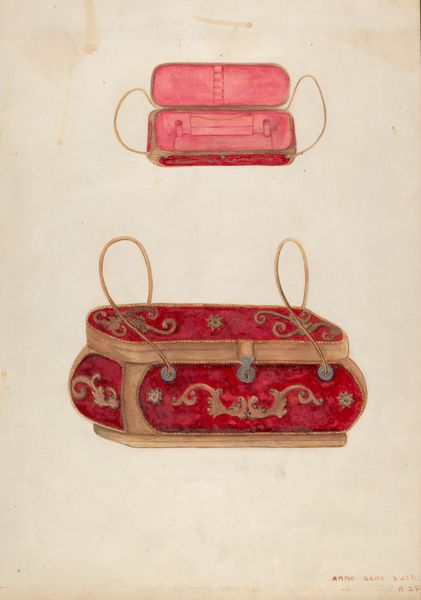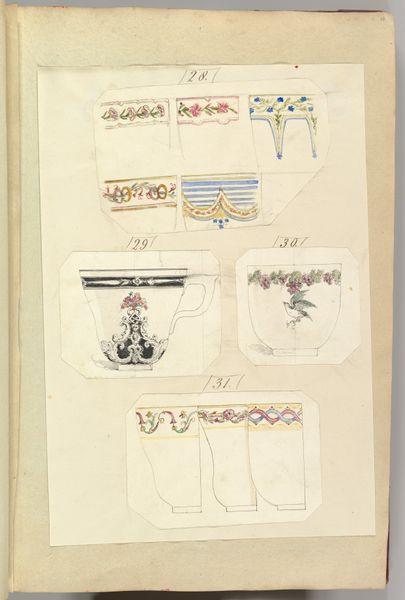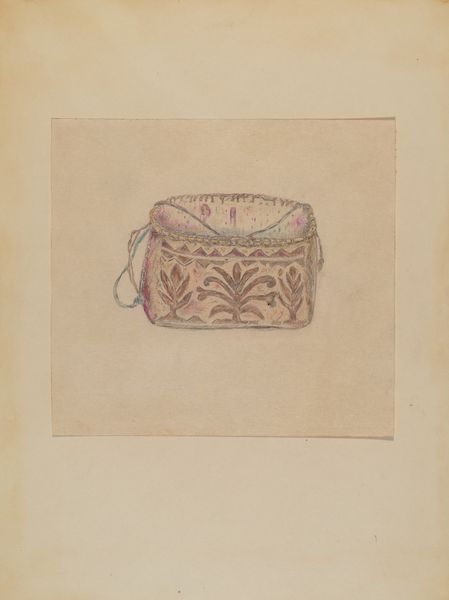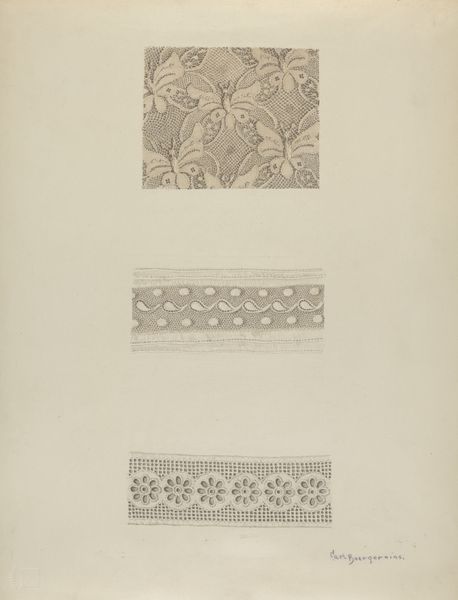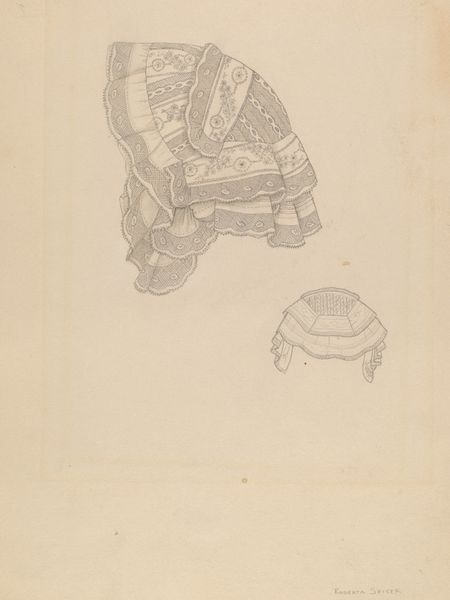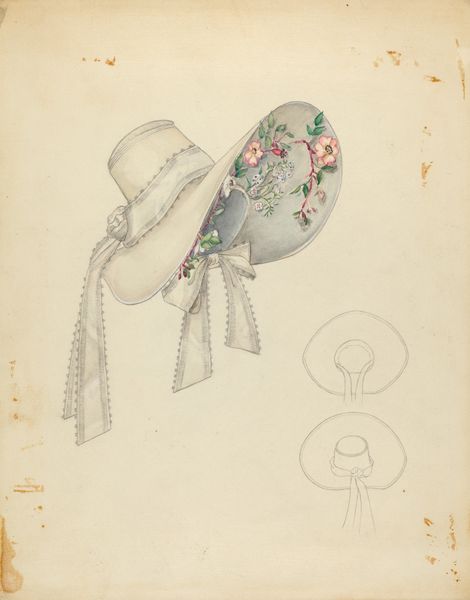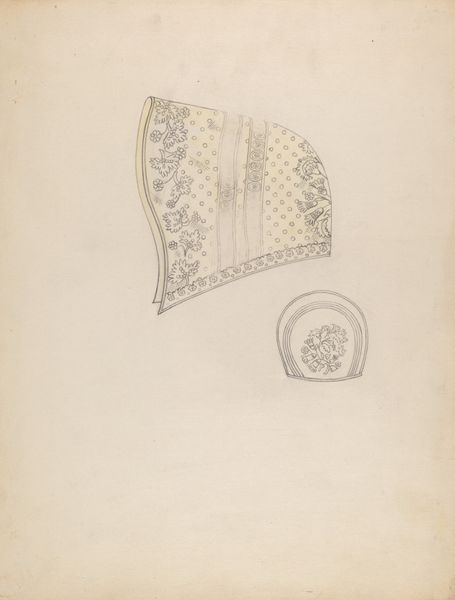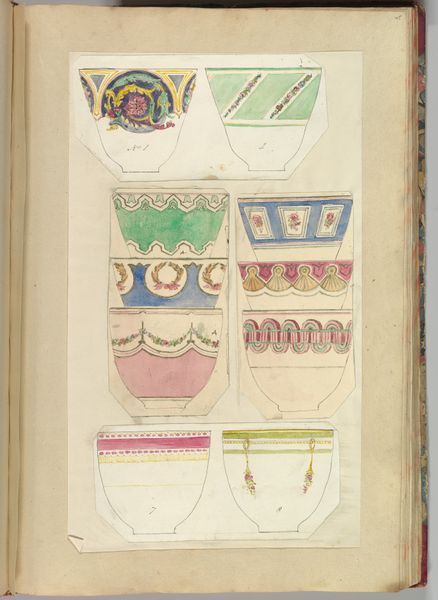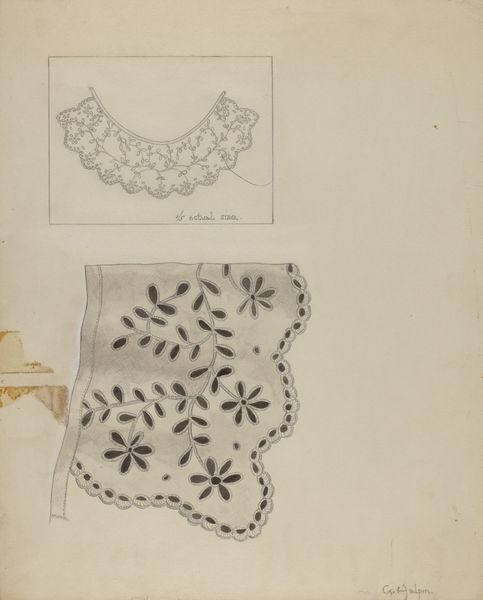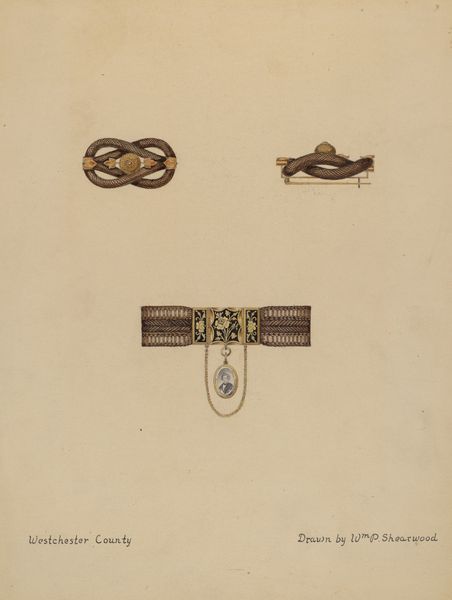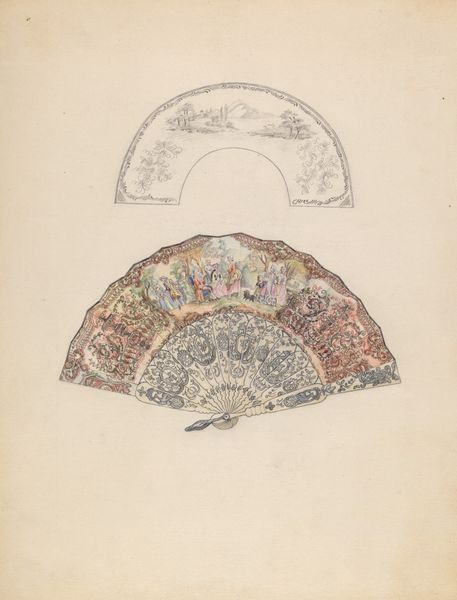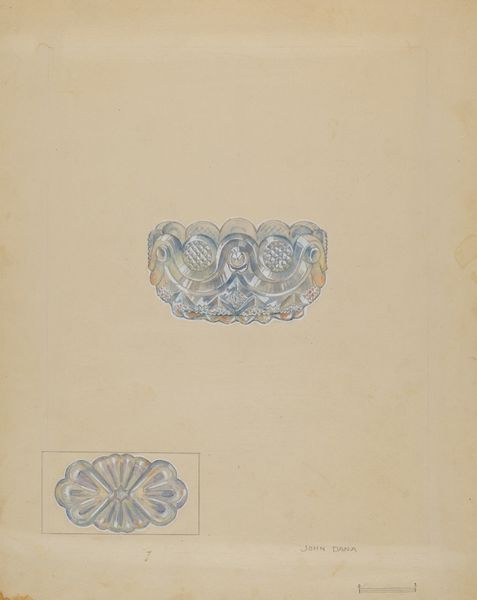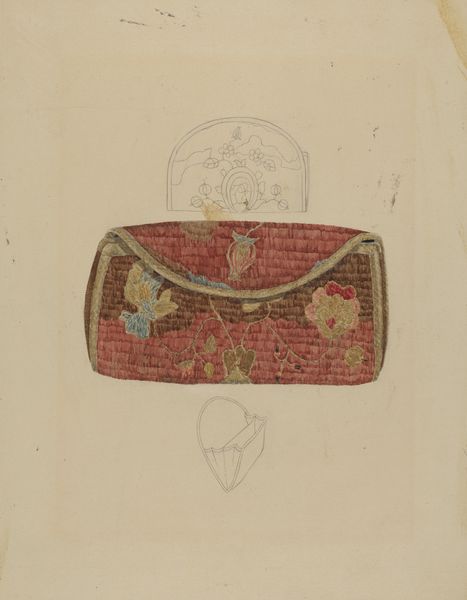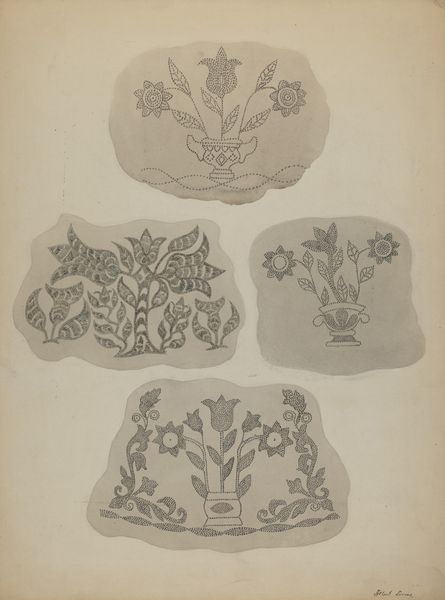
drawing, watercolor, pencil
#
drawing
#
toned paper
#
light pencil work
#
pencil sketch
#
personal sketchbook
#
watercolor
#
ink drawing experimentation
#
pencil
#
sketchbook drawing
#
watercolour bleed
#
watercolour illustration
#
sketchbook art
#
watercolor
Dimensions: overall: 29.4 x 23.1 cm (11 9/16 x 9 1/8 in.)
Copyright: National Gallery of Art: CC0 1.0
Editor: This is “Hat,” a pencil and watercolour drawing from around 1936 by Catherine Fowler. It's clearly a sketch, and the almost whimsical depiction of these hats feels quite lighthearted. What do you see in this piece, especially considering its place in art history? Curator: This sketch speaks volumes through its seemingly simple imagery. Hats, across cultures, have always been potent symbols of status, profession, and even personality. The flourish of watercolour here transforms utilitarian objects into statements. Do you notice how Fowler uses colour? Editor: I do; the choice of pinks and purples gives the hats a soft, almost feminine quality. Was there a particular cultural significance to these colours during that era? Curator: Precisely. During the 1930s, these hues moved from being associated with aristocracy towards wider acceptance, influenced by fashion and popular culture. Also, notice the precision of the pencil work combined with the fluidity of the watercolour. What might this contrast suggest to you? Editor: Maybe a tension between tradition and modernity? The precise lines hint at the established styles of hat-making, while the watercolour brings in a more expressive, contemporary feel. Curator: An astute observation. Furthermore, sketching itself carries symbolic weight. It's a practice of observing, understanding, and interpreting the world. In this case, Fowler uses it to explore the symbolic language of hats, inviting us to consider how these objects shape identity and social roles. Are we defined by what we wear, or do we imbue these objects with meaning? Editor: That's fascinating! I hadn’t considered the deeper implications of something as everyday as a hat. Curator: Indeed! Fowler’s sketch encourages us to examine how seemingly mundane objects are laden with cultural memory, and it challenges us to interpret the symbols woven into our daily lives. Editor: This has given me a new appreciation for how even preliminary sketches can offer insights into culture and identity.
Comments
No comments
Be the first to comment and join the conversation on the ultimate creative platform.
